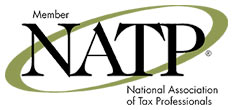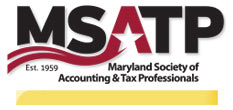.loader { border: 16px solid #f3f3f3; border-top: 16px solid #3498db; border-radius: 50%; width: 120px; height:…

10 Bookkeeping Mistakes to Avoid for Small Business Owners
10 Bookkeeping Mistakes to Avoid for Small Business Owners
Running a small business can be incredibly rewarding, but it also comes with its fair share of challenges. One area that many small business owners struggle with is bookkeeping. Keeping accurate and up-to-date financial records is essential for the success of any business, but there are a number of common mistakes that can trip up even the most diligent entrepreneur. In this article, we’ll explore 10 bookkeeping mistakes to avoid for small business owners in Bethesda, Maryland.
1. Mixing Personal and Business Finances
One of the biggest mistakes that small business owners make is failing to separate their personal and business finances. Mixing these two types of transactions can make it difficult to track expenses, reconcile accounts, and prepare accurate financial statements. Make sure to open a separate business bank account and use it exclusively for business transactions.
2. Not Keeping Receipts
Every business expense, no matter how small, should be backed up by a receipt. Failing to keep track of these receipts can lead to missing or duplicate expenses, which can throw off your financial records. Consider using a digital receipt tracking system to make this process easier.
3. Ignoring Reconciliations
Reconciling your bank and credit card statements on a regular basis is essential for catching errors and fraud, and ensuring that your financial records are accurate. Set aside time each month to reconcile all of your accounts.
4. Overlooking Petty Cash
If your business operates a petty cash fund, it’s important to keep detailed records of all withdrawals and expenses. Failing to track these transactions can lead to discrepancies in your accounts.
5. Not Backing Up Data
In this digital age, it’s essential to regularly back up your financial data. A computer crash or data breach could result in the loss of important financial records, so make sure to save backups to a secure location.
6. Misclassifying Expenses
It’s important to categorize expenses correctly in order to get an accurate picture of your business’s financial health. Misclassifying expenses can lead to incorrect tax filings and financial statements.
7. Failing to Account for Sales Tax
If your business is required to collect sales tax, make sure to accurately track and remit these funds to the appropriate tax authorities. Failing to do so can result in fines and penalties.
8. Not Keeping Up with Payroll Records
Properly tracking payroll expenses is crucial for staying compliant with tax laws and regulations. Consider outsourcing payroll services to ensure accuracy and timeliness.
9. Relying on Outdated Software
Using outdated or inadequate bookkeeping software can lead to errors and inefficiencies in your financial processes. Invest in a modern accounting system that meets the needs of your business.
10. Not Seeking Professional Help
Finally, one of the biggest mistakes that small business owners can make is trying to handle all of their bookkeeping tasks on their own. Working with a professional bookkeeper can help you avoid costly mistakes and ensure that your financial records are accurate and up-to-date.
In conclusion, avoiding these common bookkeeping mistakes can help small business owners in Bethesda, Maryland, maintain accurate financial records and make more informed decisions. If you need help with your bookkeeping or tax preparation, don’t hesitate to contact us at Apley Capital. Remember, your business’s financial health is too important to leave to chance.
For more info or tips on tax preparation services, you might also be interested in our blog post: The Ultimate Guide to State Tax Preparation for Small Business Owners in Bethesda MD.



